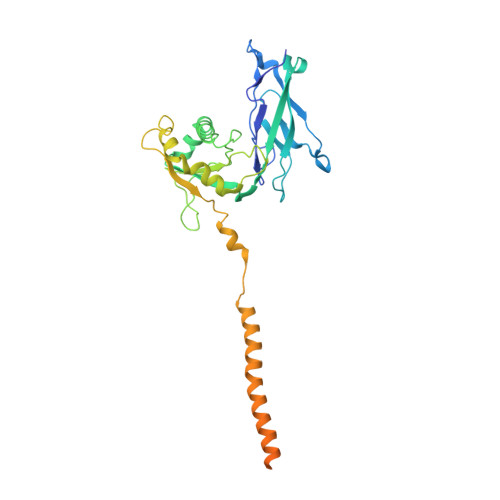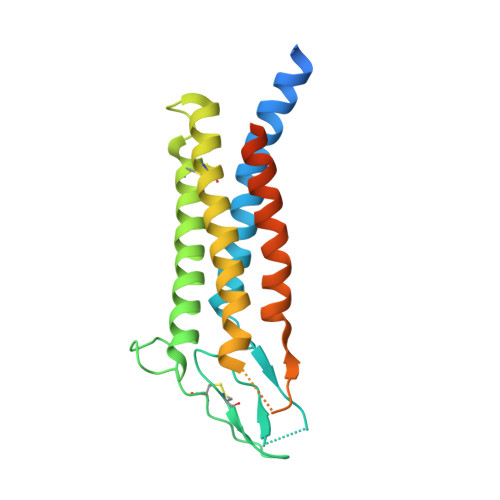Structure of mouse protocadherin 15 of the stereocilia tip link in complex with LHFPL5.
Ge, J., Elferich, J., Goehring, A., Zhao, J., Schuck, P., Gouaux, E.(2018) Elife 7
- PubMed: 30070639
- DOI: https://doi.org/10.7554/eLife.38770
- Primary Citation of Related Structures:
6C10, 6C13, 6C14 - PubMed Abstract:
Hearing and balance involve the transduction of mechanical stimuli into electrical signals by deflection of bundles of stereocilia linked together by protocadherin 15 (PCDH15) and cadherin 23 'tip links'. PCDH15 transduces tip link tension into opening of a mechano-electrical transduction (MET) ion channel. PCDH15 also interacts with LHFPL5, a candidate subunit of the MET channel. Here we illuminate the PCDH15-LHFPL5 structure, showing how the complex is composed of PCDH15 and LHFPL5 subunit pairs related by a 2-fold axis. The extracellular cadherin domains define a mobile tether coupled to a rigid, 2-fold symmetric 'collar' proximal to the membrane bilayer. LHFPL5 forms extensive interactions with the PCDH15 transmembrane helices and stabilizes the overall PCDH15-LHFPL5 assembly. Our studies illuminate the architecture of the PCDH15-LHFPL5 complex, localize mutations associated with deafness, and shed new light on how forces in the PCDH15 tether may be transduced into the stereocilia membrane.
- Vollum Institute, Oregon Health & Science University, Portland, United States.
Organizational Affiliation:

















